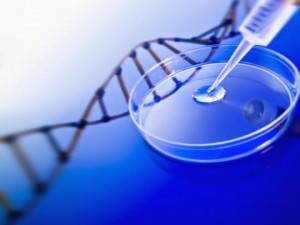PGS and PGD
– 24 Chromosome Genetic Screening (PGS)
– Translocation / Inversion
– Biopsy services
Thai Reproductive Genetic’s Preimplantation Genetic Screening (PGS) and Preimplantation Genetic Diagnosis (PGD)
PGS is a process to investigate the genetic parents are known or presume to be chromosomally normal and their embryos are screened for aneuploidy. PGS has been mostly applied to women of advanced maternal age or with an indication, such as recurrent implantation failure or recurrent miscarriage.
PGD is the test of pre-implantation stage embryos or oocytes for genetic defects. It has been developed for couples at risk of gene mutation.
24-Chromosome Genetic Screening
Any age group in IVF cycle, the incidence of chromosome abnormalities in embryos is extremely high and good embryo morphology does not exclude an abnormal chromosomal constitution. In the past, fluorescence in situ hybridization (FISH) for PGD has enabled screening of embryos for chromosome aneuploidies but it has many limitation such as human errors and limited number of chromosome tested. Now, the new innovation of genetic analysis method aim to increase number of chromosomal testing from 5 to 24 chromosome. Embryos with the normal number of chromosome (46) have a higher chance of implantation and lower chance of miscarriage.
What is 24 chromosome genetic screening?
24 chromosome screening is an established method for fast and accurate detection of numerical chromosomal abnormalities. It was not only detects submicroscopic chromosomal imbalances, but also allows reliable detection of chromosomal deletions and duplications with higher resolution than karyotype analysis.
Advantages of array CGH
– Higher diagnostic yield
– 24 chromosome checking
– Increase pregnancy outcome and avoid multiple pregnancy
24 chromosome screening indicated for couples with
– female age 35 or older
– recurrent miscarriage
– repetitive implantation failure
– previous pregnancy with a chromosome abnormality
Among women who do not want high-order pregnancy, 24 chromosome CGH test is a good choice for single embryo transfer. For more information please contact Thai Reproductive Genetic.com
Translocation testing
Chromosomal abnormalities, especially translocations, are known to be implicated in various forms of reproductive failure, ranging from defective gametogenesis to recurrent spontaneous miscarriage.
Translocation is some kind of chromosome abnormality caused by rearrangement of parts between nonhomologous chromosomes. Translocation can be balanced or unbalanced.
Reciprocal translocations is a segment of one chromosome is exchanged with a segment of another chromosome of a different pair. Robertsonian translocation is a type of chromosome rearrangement that is formed by fusion of the whole long arms of two acrocentric chromosomes.
The overall chromosome abnormalities were detected in 2.5% of implantation failure and 4.7% of recurrent miscarriage. The frequency of chromosomal translocations is significantly higher among infertile couples compares to the normal population. Translocation was found in 4.1% in infertile couples and 9.2% in the case of recurrent miscarriage. Parental who carry a balanced chromosome rearrangement often do not know that they carry the rearrangement and they do have a higher chance of making gamete with extra or missing genetic material. This can lead to many problems such as infertility, miscarriage, birth defect or intellectual disability.
The pattern of inheritance are unpredictable and depend on the particular chromosomes involved and the size of the rearrangements with developments in preimplantation genetic diagnosis to include testing for Robertsonian and Reciprocal translocatons, detection of these structural chromosomal anomalies in couples having IVF treatment becomes of great importance.
24 chromosome translocation test allowing preimplantation diagnosis of structural anomalies is of particular relevance of infertile couples with autosomal translocation.
Biopsy services
PGD cases can only be accepted after loaded samples have been evaluated by the Thai Reproductive Genetic Laboratory (TRG). TRG center can be provided with supplementary loading training in one of the facilities free of charge. To arrange the schedule please contact Thai Reproductive Genetic.com
The cost of embryologist is Thai Reproductive Genetic.com bath per biopsy and loaded single cell procedure plus travel expenses.



